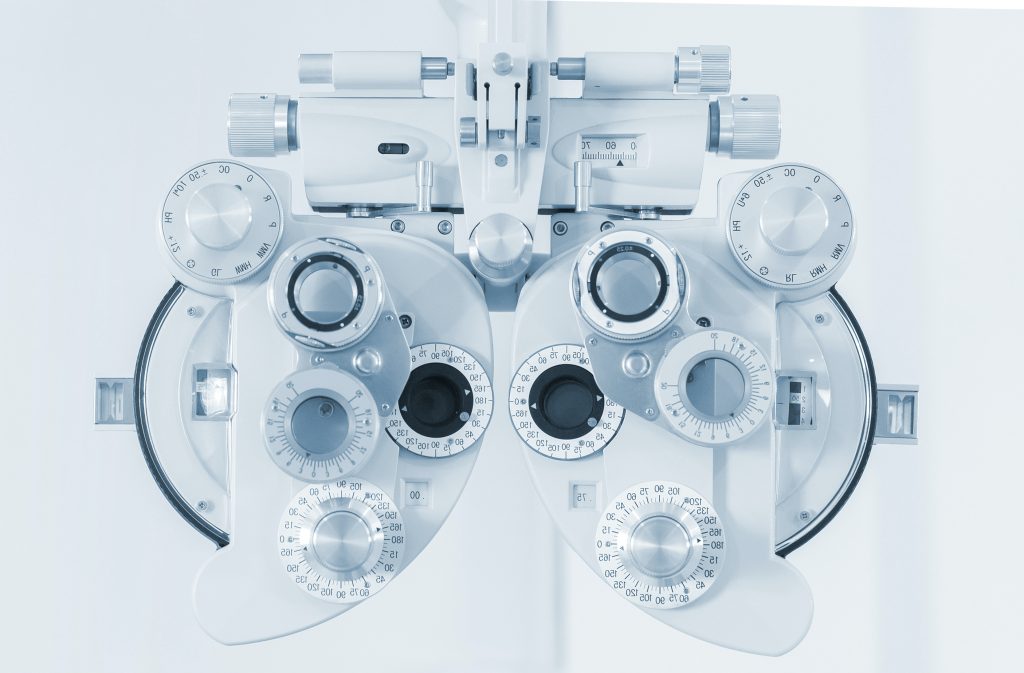Comprehensive Eye Examination
A comprehensive eye examination does more than determine how clearly you see and which lens prescription will give you the best possible vision. Much like other screenings, many diseases and illnesses can be detected during an eye exam, such as; diabetes, high blood pressure, autoimmune diseases, sexually transmitted diseases and cancers. Your eye doctor will carefully evaluate the health and function of your entire eye.
At your initial visit, a technician will ask questions about you and your family’s medical history, and any existing eye problems. If you wear contact lenses or prescription glasses (including sunglasses), bring them with you. Your eye doctor will check them to make sure that they are the correct lenses for your eyes.






